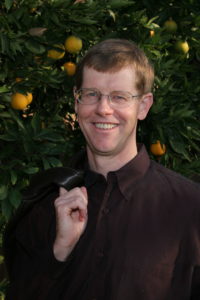About Glenn
 Glenn Stevenson is a psychotherapist and life coach with more than thirty years experience. He is known as an expert in people’s sense of self. His psychotherapy specialties are self-esteem enhancement, treatment of anxiety and depression, and relationship therapy. His life coaching specialties are helping people find personal direction in their work life and relationship coaching.
Glenn Stevenson is a psychotherapist and life coach with more than thirty years experience. He is known as an expert in people’s sense of self. His psychotherapy specialties are self-esteem enhancement, treatment of anxiety and depression, and relationship therapy. His life coaching specialties are helping people find personal direction in their work life and relationship coaching.
Glenn is gifted at insight into people’s problems. He combines an excellent ability to analyze with a comforting capacity to be supportive and empowering. He sees things from many sides and in depth, even as he makes people feel accepted, comfortable, and able to open up to themselves.
Licensed Therapist
Glenn holds a license as a clinical social worker, is certified as a job and career transition coach, and has taught The Power of Self-Esteem and The Power of Purpose courses in the nonprofit More to Life Program. He graduated from some of the country’s top colleges and universities—Stanford University, the University of Wisconsin, and the Smith College graduate program.
Glenn is a career changer himself. Before becoming a therapist and a coach, he completed a Ph.D. in natural resource economics. He worked to solve energy and environmental problems and to foster economic development in third-world countries. He has published articles and a book in economics (Common Property Economics, Cambridge University Press, 1991). He has lived and worked in Europe, Africa, and Asia, adding further to his experiences and his understanding of people.
While working as an economist, Glenn discovered more of himself through the More to Life personal growth program. He also began to get unsolicited feedback from others that he had gifts for working with people. People say that he “hears others” and that he is skilled at facilitating people through their emotionally stuck and blind places. Others also describe him as “kind,” “unpretentious,” and “sincere.” They say they come away from interactions with him feeling “grounded.” Glenn is especially thoughtful and does not have a “quick on the draw” style.
With newfound gifts and a passion for working with people, Glenn left his career as an economist. He went back to school to get a Master’s degree at Smith College and became a therapist. In the early 1990s, he began practicing as a therapist and eventually became a supervisor of other therapists working with children, adolescents, and families in Southern California. Later, in a private therapy practice, because of his expertise in people’s sense of self, he began specializing in reducing anxiety and depression and in improving relationships with adults.
Life Coach
In 2001, Glenn added life coaching to his practice. He continued to work on relationship and sense of self issues. He has added job and career transition, because work is also a way in which people express themselves. Glenn wants people to be authentically, confidently, and serenely more of who they really are. He wants people to know their unique qualities and to apply them in joyful ways. Glenn has coach-specific training from the Institute for Life Coach Training and The More to Life Program. Glenn has been on the Board of the International Coach Federation-Orange County Chapter, and he previously held the Associate Certified Coach credential from the International Coach Federation.
You can contact Glenn’s Tustin or Whittier, California, office at (714) 468-9963 or use the form on this website’s Contact Page to discuss how Glenn can work with you to attain your personal goals through cognitive behavioral therapy or life coaching.
Recent Blog Posts

Do You Worry Instead of Sleep?

Find the Good in All Things
